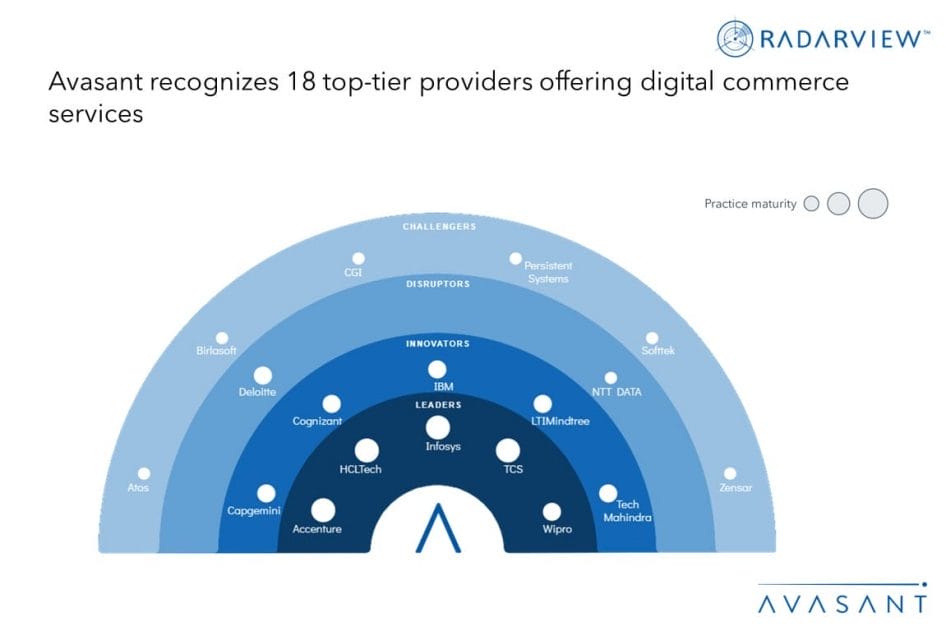Enterprises are increasingly shifting their focus from traditional e-commerce models like B2B and B2C to D2C, B2B2C, and online marketplaces to increase market reach and drive business agility and growth. To enable this, they are adopting new order fulfillment strategies that help reshape digital commerce operations, boost delivery speeds, and reduce costs. They are also upgrading their legacy digital commerce infrastructure and uplifting customer engagement through next-generation commerce to drive scalability and flexibility. Further, personalization boundaries are being pushed by digital commerce platform vendors who integrate generative AI capabilities in their current solutions. Aligned with these trends, service providers’ priorities are underscored by investments in next-generation commerce, expanding partner ecosystems, and practice growth.
Both demand- and supply-side trends are covered in Avasant’s Digital Commerce Services 2023–2024 Market Insights™ and Digital Commerce Services 2023–2024 RadarView™, respectively. These reports present a comprehensive study of digital commerce service providers and closely examine the market leaders, innovators, disruptors, and challengers.
We evaluated 39 service providers across three dimensions: practice maturity, partner ecosystem, and investments and innovation. Of the 39 providers, we recognized 18 that brought the most value to the market during the past 12 months.
The report recognizes service providers in four categories:
-
- Leaders: Accenture, HCLTech, Infosys, TCS, and Wipro
- Innovators: Capgemini, Cognizant, IBM, LTIMindtree, and Tech Mahindra
- Disruptors: Deloitte and NTT DATA
- Challengers: Atos, Birlasoft, CGI, Persistent Systems, Softtek, and Zensar
Figure 1 below from the full report illustrates these categories:

“Successful commerce enterprises have prepared themselves to address customer priorities around convenience and frictionless shopping through next-gen commerce solutions,” said Libby Roney, Avasant fellow. “Generative AI is the next big bet that can advance personalization and augment product discovery and recommendations.”
The reports provide several findings, including the following:
-
- Businesses are increasingly focusing on D2C, B2B2C, and marketplaces to increase market reach, drive business agility, and scale growth, disrupting traditional e-commerce models like B2B and B2C.
- Enterprises are upgrading their legacy commerce infrastructure to enhance time-to-market, scale operations, and drive personalization via three key approaches: embracing cloud-based platforms and SaaS models, adopting composable commerce and microservices, and re-platforming with platform-to-platform migration.
- The adoption of digital commerce services is expanding beyond traditional segments of retail and CPG. In the healthcare and life sciences, as well as telecom, media and entertainment sectors, it doubled between 2022 and 2023, increasing from 4% to 9% and 8% to 16%, respectively.
“To enhance speed-to-market and scalability, enterprises need to manage evolving channel complexities and upgrade legacy commerce infrastructure,” said Shwetank Saini, associate research director at Avasant. “Composable commerce strategy will help identify new growth paths through best-of-breed capabilities.”
The RadarView also features detailed profiles of 18 service providers, along with their solutions, offerings, and experience in assisting enterprises in their commerce transformation initiatives.
This Research Byte is a brief overview of the Digital Commerce Services 2023–2024 Market Insights™ and Digital Commerce Services 2023–2024 RadarView™ (click for pricing).




